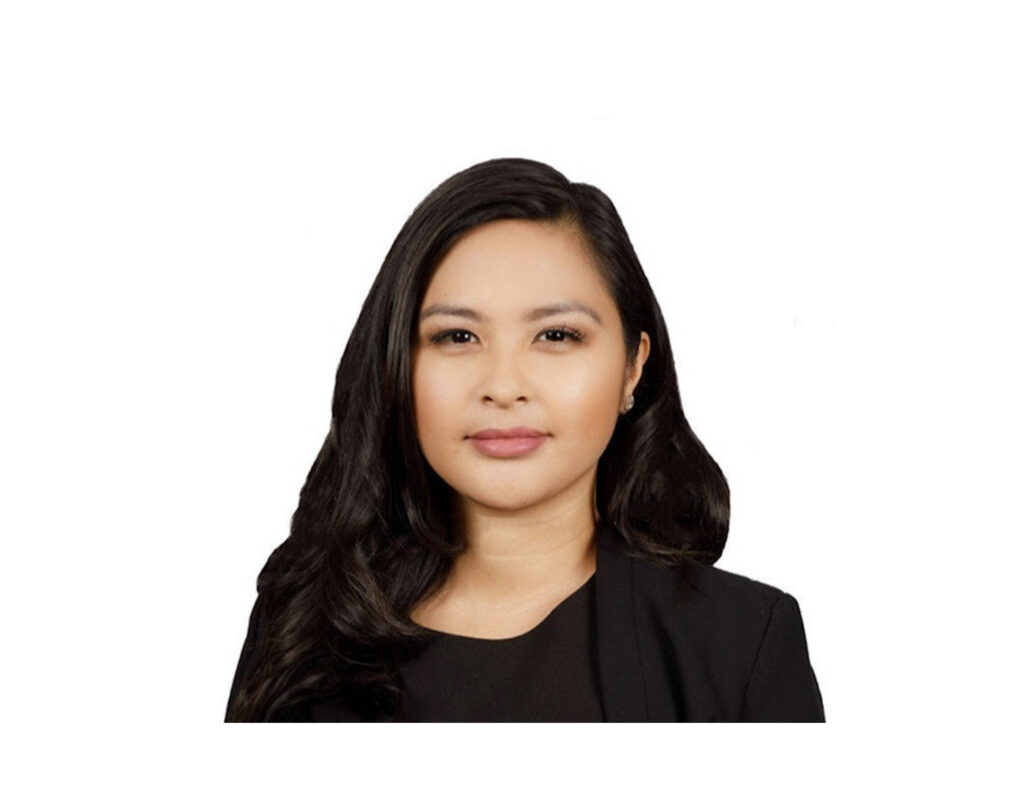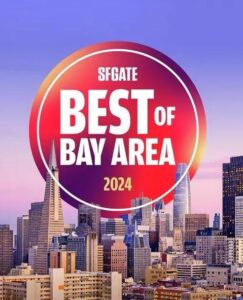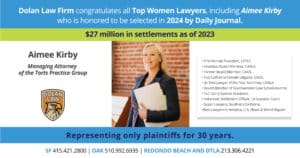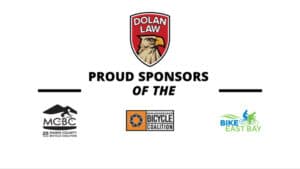This morning, we had the opportunity to catch up with our senior associate attorney from our Oakland office and current president for the Filipino Bar Association of Northern California. FBANC is an organization of attorneys, judges and law students dedicated to serving the Filipino American legal community in Northern California. As a talented attorney, Mari Bandoma Callado represents employees in wrongful termination, discrimination, harassment, retaliation and human trafficking cases. She also represents injured individuals and families of loved ones who have died due to the fault of others, including in elder abuse and neglect lawsuits. From 2017 to this year, Mari is recognized as Super Lawyers’ Rising Star among Northern California attorneys.
At the Dolan Law Firm, Mari assists courageous employees in safeguarding their rights and has achieved remarkable success in cases involving:
- Age Discrimination;
- Disability Discrimination;
- Family Medical Leave Act (FMLA) and/or California Family Rights Act violations;
- Ethnicity and National Origin Discrimination;
- Gender and Sex Discrimination;
- Human Trafficking;
- Pregnancy Discrimination;
- Race Discrimination;
- Retaliation and Wrongful Termination;
- Sexual Harassment;
- Sexual Orientation Discrimination;
- Wage & Hour violations (including failure to pay overtime, break time or vacation time)
- Whistleblower Retaliation
“While important, for most employees we represent it’s not just about recovering monetary damages,” Mari explains. “They have been treated unfairly and suffered significant emotional distress. Justice demands that their rights be vindicated and wrongdoers be held accountable.”
Mari has successfully represented clients in a wide range of individual personal injury & wrongful death lawsuits including:
- Bicycle Accidents
- Car Accidents
- Hazardous Roadways
- Motorcycle Accidents
- Premises Liability (“Slip and Fall” cases)
- Bar Owner Liability
- Public Transportation Accidents
- Assault and Battery
- Hate Crime
- Elder Abuse
- Products liability
- Wrongful death
Mari has been an active member of several local national bar associations, including the Filipino Bar Association of Northern California where she has been a member since 2010 (as a law student) and served as a board member three years later. She now serves as FBANC’s 40th president and chairs several committees.
Interview with Mari
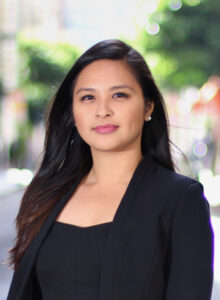
Hello Mari, thank you for taking the time to speak to us. How does it feel to be FBANC’s 40th president?
It truly is an honor to serve as FBANC’s 40th President. I have to say that this is a challenging year to be president as nothing about this time is ordinary. We could not have anticipated how our lives, our economy, and our sense of normalcy would be severely disrupted by a public health emergency.
The pandemic also exposed pre-existing racial inequities in our health system as COVID-19 continues to disproportionately kill people of color – particularly Black Americans. It also reminded us how quickly, and unapologetically, this nation shifts the blame on the “other” during moments of crisis. The violent deaths of George Floyd, Breonna Taylor, and Ahmaud Arbery at the hands of police and vigilantes sparked a public outcry to eradicate an arguably deadlier disease, racism.
These last couple of months have placed a spotlight on the horrific injustices that Black Americans suffer. As a mother to a two-year-old son, I feel sick to my stomach thinking about how Black mothers live in a constant fear of never seeing their sons again. I refuse to imagine, it’s impossible to imagine, it’s a privilege to not be able to imagine.
All mothers were summoned when George Floyd called for his mama. As lawyers, we are privileged to hold this power. We have an obligation to use our voice to speak up for those muzzled by systemic racism and to continue to serve marginalized communities. As president, I hope to continue serving the Filipinx and Filipinx-American and marginalized communities as FBANC has done for the last four decades.
Tell us about the virtual installation ceremony. What were the major challenges about organizing such an event?
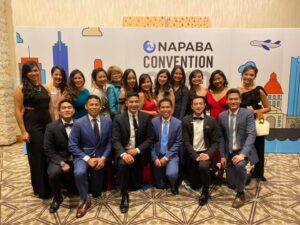
The FBANC Board transformed its annual fundraiser gala, which FBANC planned to host 300+ guests, into a virtual installation ceremony. The ceremony featured trailblazers in the Filipino-American legal community including the induction of FBANC’s officers by California Supreme Court Chief Justice Tani Cantil-Sakauye; remarks by the Hon. Benjamin Reyes, II, the first Filipino-American superior court judge in Contra Costa County, the Hon. Audra Ibarra, the first Filipina-American superior court judge in the SF Bay Area, remarks by Rob Bonta, the first Filipino-American Assemblymember in the California Legislature.
FBANC kicked off the celebration with a virtual cocktail reception and held a virtual afterparty with a live DJ. The ceremony was attended by almost 140 viewers and has been viewed over 500 times on YouTube, making it the most attended FBANC installation ceremony to date. During the ceremony, the FBANC Foundation, which provides scholarships to support the educational development of Filipino and Filipino American lawyers and law students in Northern California, awarded over $40,000[1] in scholarships and stipends to aspiring attorneys.
Switching to a virtual format for our annual fundraising gala means we did not incur typical expenditures related to that event. FBANC hosted the ceremony at no cost to attendees in light of the economic downturn and to encourage donations to other causes. In light of the financial impacts of COVID-19, FBANC leadership made a conscious decision not to seek sponsorships for the virtual gala. Therefore, one big challenge is funding our programming this year. Fortunately, because of the Board’s financial stewardship over the past several years, FBANC still begins the year with sufficient funds to operate. In the coming year, FBANC plans to adopt a cost-saving budget to preserve its financial resources. FBANC will also solicit sponsorships for its programming and conduct membership drives to supplement its operating budget.
What are some major goals for FBANC for the coming year?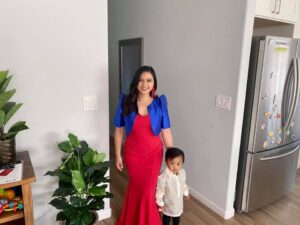
Established in 1981, FBANC aims to continue serving our community and remains committed to diversifying the legal profession and providing a voice for, and advocating on behalf of, Filipinx and Filipinx-American interests in various forums.
The global pandemic forced FBANC to think outside the box in terms of member engagement. FBANC’s programs will be virtual for at least the end of the year. We are hosting a virtual conference for law students on August 9 and well as offering professional development webinars and remote social events. FBANC is also aiming to raise $40,0000 for the FBANC Foundation’s legal scholarships and stipends to celebrate FBANC’s 40th anniversary. To facilitate serving the community, FBANC will be relaunching our free remote legal clinics and will be providing webinars to the public on various issues.
I realize this may be a broad question, but how has COVID-19 affected the Filipino and Filipino American community in the Bay Area?
First respondents and healthcare workers have made sacrifices serving on the frontlines all across the country every day, but particularly during the COVID-19 pandemic, including losing their lives. Filipinx Americans make up a large portion of the nation’s health care workforce. In the Bay Area, approximately 17% of nurses are Filipinx/Americans.
Moreover, it has been reported that COVID-19-related fatalities have higher rates in the Filipinx American communities. Experts believe the higher risk factors among Filipinx and Filpinx Americans could be prevalent preexisting health conditions, poverty, undocumented status and lack of health insurance.
In the wake of the COVID-19 pandemic, FBANC recognized the widespread need in our community for support and legal assistance. FBANC contributed to relief efforts through the following initiatives by:
- Releasing a Resource Guide for workers, tenants, domestic violence survivors, and immigrants after California’s shelter-in-place orders took effect.
- Presenting legal information via webinars and interviews with The Filipino Channel to provide legal resources to the Filipinx and Filipinx-American community.
- Launching a two-month long Virtual Unemployment Form Assistance Clinic with Asian Americans Advancing Justice – Asian Law Caucus. Over 70 volunteer attorneys, law students and advocates offered 1400+ pro bono hours to the public. The virtual clinic provided services in Tagalog, Ilocano, Cebuano, Cantonese, Mandarin, Korean and Spanish to almost 500 clients. The clinic assisted 140 clients with filling out unemployment, disability and paid family leave benefit from start to finish. FBANC also trained two local organizations to provide a similar service.
- Providing a wills assistance virtual clinic and legal resources to emergency responders through a partnership with Legal Access Alameda and hosting a free webinar on basic estate planning for health care professionals.
- Providing (through the FBANC Foundation) over $10,000 in COVID-19 relief stipends to law students who have been affected financially by the pandemic.
You were also nominated as a Super Lawyer Rising Star this year. Tell us what this means to you?
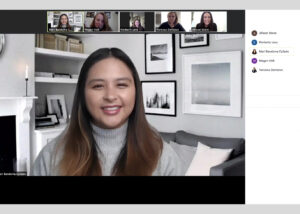
It is an honor to be included on the Super Lawyer’s Rising Star list for the fourth consecutive year because to be eligible for this recognition, you have to be nominated by your peers. Moreover, fewer than 2.5% of eligible licensed attorneys who have either been practicing for fewer than ten years, or are under 40 years old are given this recognition.
In the age of COVID-19 and as working parent, do you have any advice to other parents? How do you maintain a work and personal life balance?
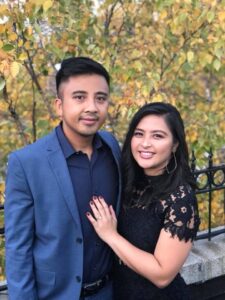 With childcare options being extremely limited, my husband and I have had to coordinate working and caring for our two-year-old. We had to work on communicating with our work. In the first few weeks of shelter-in-place, it seemed harder to maintain a work and personal life balance. There was something about having my workstation at home that made it difficult to step away from it, even after work hours. I try to squeeze in play time with my toddler and stepping out for walks during the day so I can take a “real” break, which is better for my sanity and health.
With childcare options being extremely limited, my husband and I have had to coordinate working and caring for our two-year-old. We had to work on communicating with our work. In the first few weeks of shelter-in-place, it seemed harder to maintain a work and personal life balance. There was something about having my workstation at home that made it difficult to step away from it, even after work hours. I try to squeeze in play time with my toddler and stepping out for walks during the day so I can take a “real” break, which is better for my sanity and health.
Who inspired you to go to law school? Did you have mentors that helped you along the way?
My father was injured at work in 2004. Instead of supporting him during a vulnerable time, his former employer discriminated against him for his disability, requesting accommodations and taking job-protected leave. His former employer retaliated against him and terminated his employment. I felt the worry and anxiety my parents struggled with as they figured out how we were going to supplement my father’s lost income. I told myself that I would never let anything like this happen to my family or any of my loved ones again.
I immigrated to the United States when I was twelve years old. I was the first person in my family to go to a college in America, let alone law school. During law school, I became a law student member of FBANC where I met many of my mentors who gave me advice along the way, even today as I navigate being an immigrant, woman of color in the legal profession.
Do you have any advice to young students exploring law school?
Students who are interested in going to law school should reach out to attorneys to learn more about their practice area and what they do on a day-to-day basis. Law school is a big investment, so it’s worthwhile to make sure that this is really something they want to do. It might seem intimidating but most attorneys I know are willing to take time to share their journey.
[1] Almost doubling the amount awarded from the prior term.

